
Hydrology Research
Scope & Guideline
Pioneering solutions for global water challenges.
Introduction
Aims and Scopes
- Hydrological Modeling:
The journal emphasizes the development and application of hydrological models to simulate water flow and quality across various environments, including urban, agricultural, and natural settings. - Climate Impact Studies:
Research that investigates how climate change affects hydrological cycles, water availability, and ecosystem health is a core focus, with a particular interest in trends and variability associated with global warming. - Groundwater and Surface Water Interactions:
The interplay between groundwater and surface water dynamics is explored extensively, shedding light on resource management and sustainability in varying climatic and anthropogenic contexts. - Water Quality Assessment:
The journal publishes studies on assessing water quality, including the impacts of pollutants and the effectiveness of mitigation strategies in both natural and engineered systems. - Innovative Technologies in Hydrology:
There is a strong emphasis on the use of advanced technologies such as remote sensing, machine learning, and IoT for hydrological data collection, modeling, and analysis. - Flood and Drought Management:
Research surrounding flood forecasting, risk assessment, and drought mitigation strategies is prevalent, reflecting the journal's commitment to addressing extreme hydrological events.
Trending and Emerging
- Artificial Intelligence and Machine Learning Applications:
There is a marked increase in the use of AI and machine learning techniques for hydrological modeling and prediction, showcasing the journal's embrace of innovative methodologies to enhance predictive accuracy and data analysis. - Integrated Water Resource Management:
Research focusing on the holistic management of water resources, considering socio-economic, environmental, and climatic factors, is gaining traction, reflecting a growing recognition of the interconnectedness of water systems. - Impact of Urbanization on Hydrology:
Studies examining the effects of urbanization on local hydrological cycles, including changes in runoff patterns and water quality, are becoming increasingly prominent as urban areas expand and climate challenges intensify. - Hydrological Extremes and Resilience:
Research addressing the frequency and impact of hydrological extremes, such as floods and droughts, along with strategies for resilience and adaptation, is emerging as a critical area of focus. - Climate Adaptation Strategies:
There is a growing emphasis on developing and evaluating strategies for adapting to climate change impacts on water resources, highlighting the need for practical solutions in policy and management.
Declining or Waning
- Traditional Hydrological Techniques:
There is a noticeable decrease in the publication of studies relying solely on traditional hydrological methods without integration of modern computational techniques, as researchers increasingly adopt more sophisticated analytical tools. - Localized Case Studies:
While localized studies remain relevant, there is a trend toward broader, comparative analyses across multiple regions, which may diminish the frequency of highly localized, single-site studies. - Descriptive Studies without Quantitative Analysis:
Research that focuses primarily on descriptive assessments of hydrological phenomena without quantitative modeling or advanced statistical analysis has seen a decline, as the field moves toward more robust data-driven approaches. - Static Water Resource Assessments:
The journal has seen fewer studies that do not consider dynamic changes in water resources over time, reflecting a shift towards understanding the temporal variability and impacts of climate change.
Similar Journals

JOURNAL OF HYDROMETEOROLOGY
Pioneering Research in Hydrometeorological ScienceJOURNAL OF HYDROMETEOROLOGY, published by the American Meteorological Society, is a leading scholarly journal that serves as a vital resource within the field of atmospheric science. With its ISSN 1525-755X and E-ISSN 1525-7541, this journal provides a platform for the dissemination of high-impact research, currently holding a prestigious Q1 ranking in Atmospheric Science as per the 2023 Category Quartiles. It enjoys an excellent reputation, ranked #30 out of 148 in the Scopus listings, placing it in the top 80th percentile within Earth and Planetary Sciences. Publishing rigorous and innovative studies from 2000 to 2024 and beyond, the journal addresses critical topics including weather forecasting, climate dynamics, and hydrological processes, making it essential reading for researchers, professionals, and students alike. Though not an open-access journal, it continues to enrich the academic community with quality contributions dedicated to advancing our understanding of hydrometeorological phenomena.
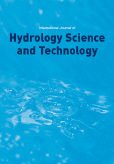
International Journal of Hydrology Science and Technology
Pioneering Research at the Intersection of Hydrology and TechnologyThe International Journal of Hydrology Science and Technology, published by InderScience Enterprises Ltd, is a distinguished platform dedicated to advancing knowledge in the field of hydrology, environmental engineering, and water science. With an ISSN of 2042-7808 and an E-ISSN of 2042-7816, this journal, established in 2011 and continuing through 2024, serves as an essential resource for researchers, professionals, and students alike. Despite being categorized in the Q3 quartile across multiple disciplines including Earth and Planetary Sciences, Environmental Engineering, Waste Management and Disposal, and Water Science and Technology, the journal maintains a reputation for contributing significant findings that impact both theory and practical applications in addressing hydrological challenges. Currently unavailable through Open Access options, the journal remains committed to disseminating valuable research that informs sustainable practices in water resource management. The editorial team encourages submissions that explore innovative strategies and methodologies while fostering interdisciplinary discussions, making this journal a pivotal player in shaping the future of hydrological science.
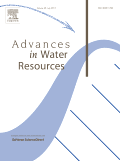
ADVANCES IN WATER RESOURCES
Pioneering research that shapes water sustainability.ADVANCES IN WATER RESOURCES is a premier peer-reviewed journal published by Elsevier Science Ltd, dedicated to advancing the field of water science and technology since its inception in 1977. With an impressive Q1 ranking in the field, this journal provides a vital platform for researchers, professionals, and students to disseminate cutting-edge research that addresses critical issues related to water resources management, hydrology, and environmental sustainability. The journal offers a comprehensive collection of articles that explore innovative methodologies, policy implications, and case studies that shape the future of water resource management. Although it does not provide open access, its impactful contributions are recognized globally, making it an essential resource for anyone engaged in water science. The journal continues to publish relevant research while looking forward to bridging the gap between theoretical insights and practical applications up until 2024.
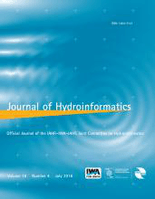
JOURNAL OF HYDROINFORMATICS
Advancing Water Science through Innovative Research.JOURNAL OF HYDROINFORMATICS, published by IWA PUBLISHING in the United Kingdom, is a leading open access journal in the field of water-related sciences and engineering. Since its inception in 1999, it has evolved to become a pivotal platform for the dissemination of significant research and innovative findings, especially after adopting an open access model in 2021. The journal spans a broad scope, intersecting various disciplines such as atmospheric science, civil and structural engineering, geotechnical engineering, and water science and technology, with its 2023 rankings placing it impressively in the Q2 quartile across several categories. With an impact factor reflective of its esteemed position within the academic community and its reach underscored by its Scopus rankings, the JOURNAL OF HYDROINFORMATICS appeals to a diverse readership including researchers, professionals, and students dedicated to advancing knowledge in hydroinformatics and related fields. Whether you are seeking to publish your cutting-edge research or to stay informed on the latest developments, this journal serves as an indispensable resource.
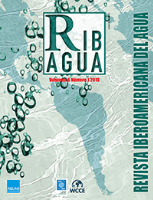
RIBAGUA-Revista Iberoamericana del Agua
Connecting researchers for a better understanding of water issues.RIBAGUA-Revista Iberoamericana del Agua is an esteemed academic journal dedicated to the study and dissemination of water-related research within the Ibero-American context. Published by TAYLOR & FRANCIS LTD, this Open Access journal has been providing a platform for scholarly articles since 2015, promoting visibility and accessibility for researchers, professionals, and students engaged in environmental science, hydrology, and water resource management. With the objective of enhancing the understanding of water issues affecting the Ibero-American region, RIBAGUA invites contributions that address innovative practices, policy implications, and scientific advancements. By fostering inter-regional dialogue and collaboration, it stands as a vital resource for those looking to contribute to sustainable water management solutions. The journal is committed to maintaining high standards of academic integrity and is ideal for anyone seeking to advance their knowledge and research in the water sciences.
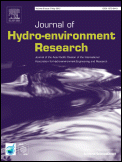
Journal of Hydro-environment Research
Unveiling interdisciplinary insights for effective water management.The Journal of Hydro-environment Research, published by Elsevier, serves as a leading platform for advancing knowledge in the fields of civil and structural engineering, environmental chemistry, and water science. With a robust impact factor reflecting its Q2 category ranking across various disciplines—including Environmental Engineering and Management, Monitoring, Policy and Law—it emphasizes high-quality research that addresses pressing environmental challenges. Embracing a global perspective, the journal explores interdisciplinary approaches to water and environmental management, thus empowering researchers and professionals to innovate and implement effective solutions. Since its inception in 2007, the journal has continually evolved, with its scope expanding into emerging areas pertinent to water science and technology. The journal is indexed in esteemed databases, ensuring wide dissemination and accessibility of published works, although it does not currently operate on an open access model. Addressing the intricate interplay between human activities and water resources, the Journal of Hydro-environment Research is quintessential for those dedicated to fostering sustainable practices and enhancing our understanding of hydro-environmental systems.

Water
Connecting researchers to tackle urgent water issues.Water, an esteemed journal published by MDPI, serves as a pivotal resource for global research in the fields of aquatic science, biochemistry, geography, and water science and technology. Since its inception in 2009, this open-access journal has committed itself to advancing knowledge regarding water-related topics by fostering a platform that encourages the dissemination of high-quality research. With its impressive impact factor reflecting its relevance and influence, Water ranks in the top quartiles in various categories, including Q1 in Aquatic Science and Water Science and Technology, showcasing its commitment to publishing cutting-edge findings that resonate deeply with the environmental and biological sciences community. Located in Basel, Switzerland, the journal prioritizes accessibility for researchers, professionals, and students alike, aligning with the broader scientific goal of addressing urgent water challenges through collaborative and interdisciplinary research.
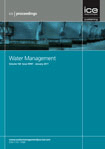
PROCEEDINGS OF THE INSTITUTION OF CIVIL ENGINEERS-WATER MANAGEMENT
Transforming Water Management through Peer-Reviewed InsightsPROCEEDINGS OF THE INSTITUTION OF CIVIL ENGINEERS-WATER MANAGEMENT is a prestigious journal published by Emerald Group Publishing Ltd, dedicated to advancing the field of water management within civil engineering. With an ISSN of 1741-7589 and an E-ISSN of 1751-7729, this journal delivers peer-reviewed research that spans the critical intersections of water science and technology, contributing valuable insights into sustainable water management practices. As evidenced by its ranking in the 2023 Scopus categories, where it holds the Q3 quartile in Water Science and Technology, and a respectable position among its peers, the journal remains a vital resource for researchers, professionals, and students in the field. Though it is not an open-access journal, it offers accessible subscription options that facilitate worldwide dissemination of knowledge, enhancing its role as a fundamental reference point for cutting-edge developments in water management. For those looking to publish or stay updated on the latest research trends, this journal serves as an essential platform for promoting innovation and sustainable practices in civil engineering and water resources management.
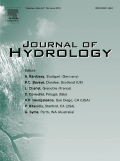
Journal of Hydrology
Innovating Solutions for Global Water ChallengesThe Journal of Hydrology, published by ELSEVIER, stands as a premier outlet for scholarly research in the field of water science and technology. With an impactful history dating back to 1949 and a convergence period extending to 2024, this journal has consistently provided a platform for cutting-edge research that shapes our understanding of hydrological processes and their implications. Located in the Netherlands, its commitment to excellence is underscored by its impressive Scopus rank of 15 out of 261 in the Environmental Science category, placing it in the 94th percentile overall, and achieving a prestigious Q1 category allocation for 2023. While the journal does not currently offer open access options, it remains an invaluable resource for researchers, professionals, and students seeking to deepen their expertise in hydrology. The rigorous peer-review process ensures the publication of high-quality manuscripts that contribute significantly to the advancement of knowledge in this critical domain.

Water Research X
Empowering researchers to tackle global water challenges.Water Research X is a prestigious journal published by ELSEVIER, focusing on the dynamic fields of water science and technology, pollution, ecological modeling, and waste management. Since its inception in 2018, this Open Access journal has become a cornerstone resource for researchers and professionals dedicated to advancing our understanding and management of water resources. Based in the United Kingdom, Water Research X holds an impressive ranking within the Scopus metrics, positioned in the Q1 category across multiple relevant disciplines, including Environmental Science, with a notable rank of 10/261 in Water Science and Technology and 3/41 in Ecological Modeling. This reflects its commitment to disseminating high-quality research that informs policy, supports sustainable practices, and fosters innovation in water management.